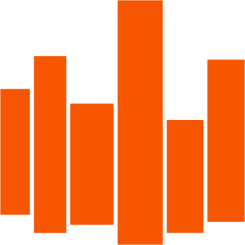Republicans and Democrats rarely agree on economic issues, but when it comes to local economic confidence, a new survey from Indeed. suggests they might see more eye to eye than many think.
“Republicans and Democrats have different views on the national economy, but there’s a lot of agreement of how they feel on labor markets,” Jed Kolko, chief economist at Indeed, told Yahoo Finance.
The job site surveyed 2,000 American adults on their politics and attitudes about the U.S. economy and found that much like the national economic outlook, 50% of respondents described their local economies as good.
Out of the top 10 U.S. cities that have the highest economic outlooks, eight of those metropolitan areas voted for Hillary Clinton in 2016 (with the exceptions being Provo-Orem, Utah, and Boise, Idaho). Three Colorado cities made the list.

Colorado cities lead the way
“The respondents were selected and weighted to be representative of the adult U.S. population in their respective regions and matched the local demographic based on gender, ethnicity, race, age and education level,” Kolko said.
The survey found the following 10 U.S. cities had the highest economic confidence:
- Boulder, CO
- Provo-Orem, UT
- Fort Collins, CO
- San Jose-Sunnyvale-Santa Clara, CA
- Boise, ID
- Ann Arbor, MI
- San Francisco-Oakland-Hayward, CA
- Austin, Round Rock, TX
- Denver-Aurora-Lakewood, CO
- Raleigh, NC
Five driving factors for economic confidence
Indeed outlined five factors that drove local economic confidence in these regions.
First was the respondents’ views on their personal finance situations. There was a direct correlation between how people viewed their finances and how they viewed their local economy. “Some 81% of respondents who rated their personal financial situation as excellent or good said the same about local economic conditions,” the report stated.
Second was their view of the current national economic conditions. According to the report, “Among respondents who rated the national economic situation as excellent or good, 83% said the same about their local economic conditions.”
Not surprisingly, political affiliation also weighed on outlook. “People’s views of the national economic situation are strongly influenced by politics, with 73% of Republicans, but only 43% of Democrats, rating national economic conditions excellent or good.”

The third factor was the local unemployment rate. Having higher local job growth rates meant that people in those regions were more optimistic about potential opportunities and thus also played a crucial role in overall local economic confidence. “People are more upbeat where the unemployment rate is lower,” the report noted.
Finally, education was an important factor. Higher education correlated with higher earnings and thus more spending power. Furthermore, the report found, “places with more highly educated populations have fewer jobs in occupations at risk from automation and more jobs in occupations projected to grow faster.”
However, Kolko said that two factors didn’t affect local economies: local cost of living and expense of local income inequality. “High cost of living reflects that there is strong demand, and people want to live there. Employers want to be there and pay the higher wages that they need to pay,” he said.
The report found that much like the national economic confidence, Republicans were generally more upbeat about the local economies as well. Republicans in the blue metropolitan regions were the group with the most positive outlook on current local economic conditions.

“[While] partisan views about the economy are fleeting — They tend to flip depending on which party has the presidency. But the favorable economic conditions in blue metros — particularly high education levels, income, and job mix — are more enduring and, if anything, strengthening,” the report said.
Heidi Chung is a reporter at Yahoo Finance.
